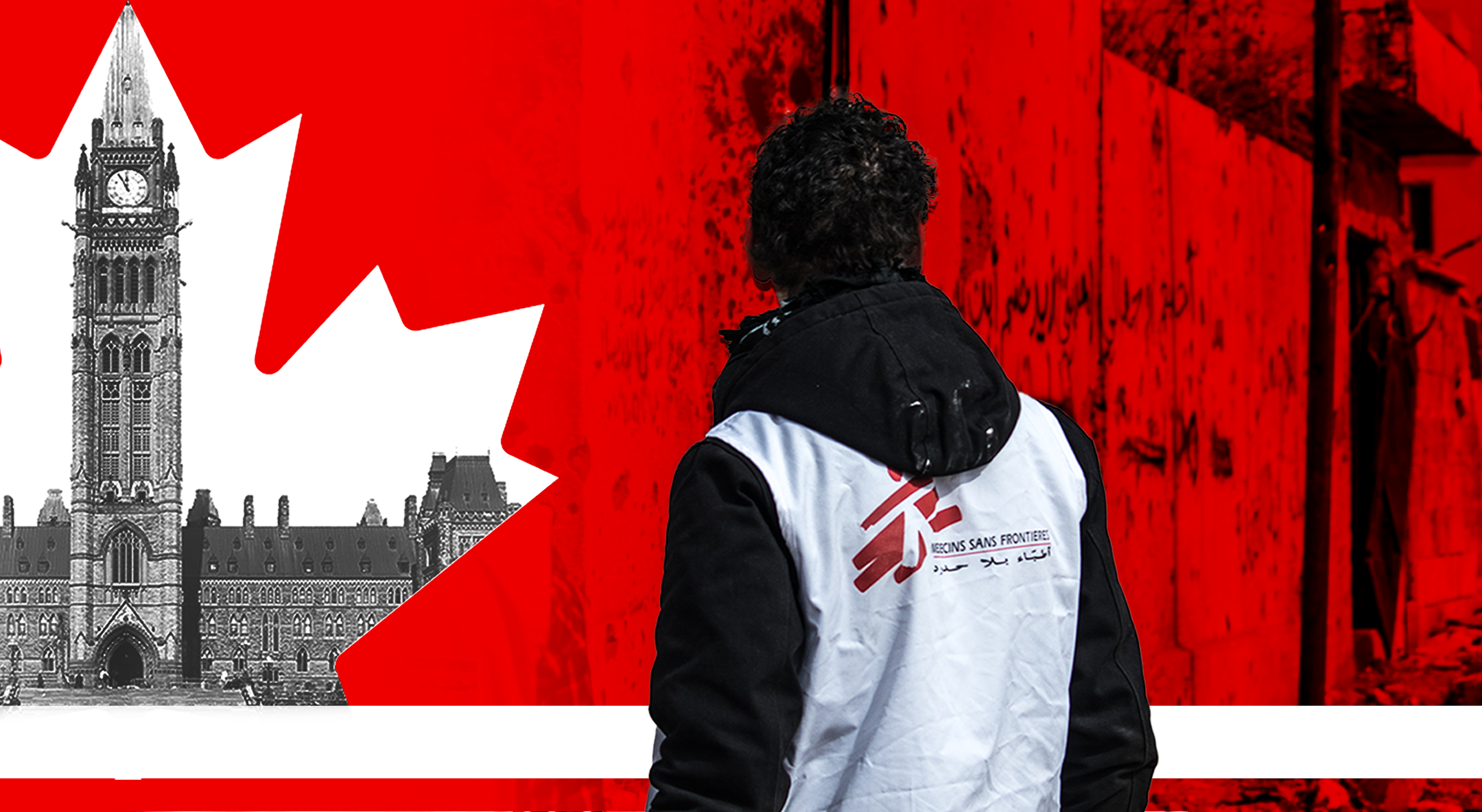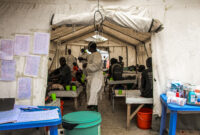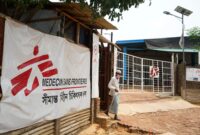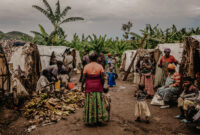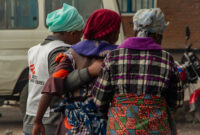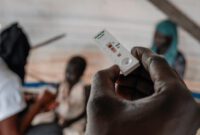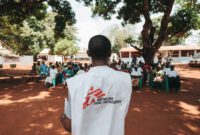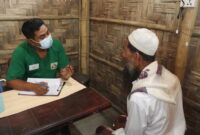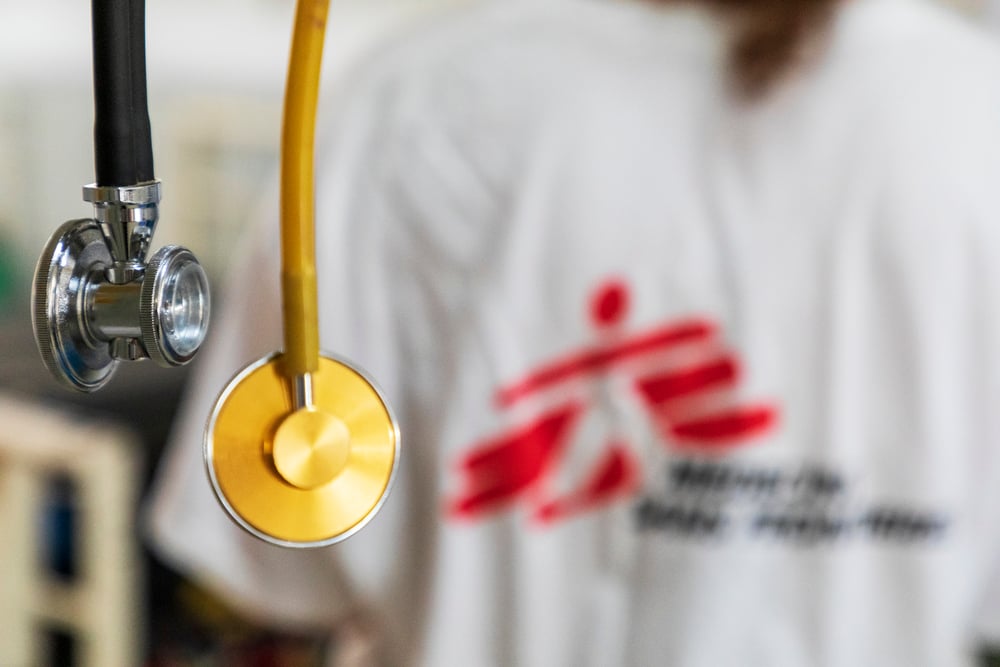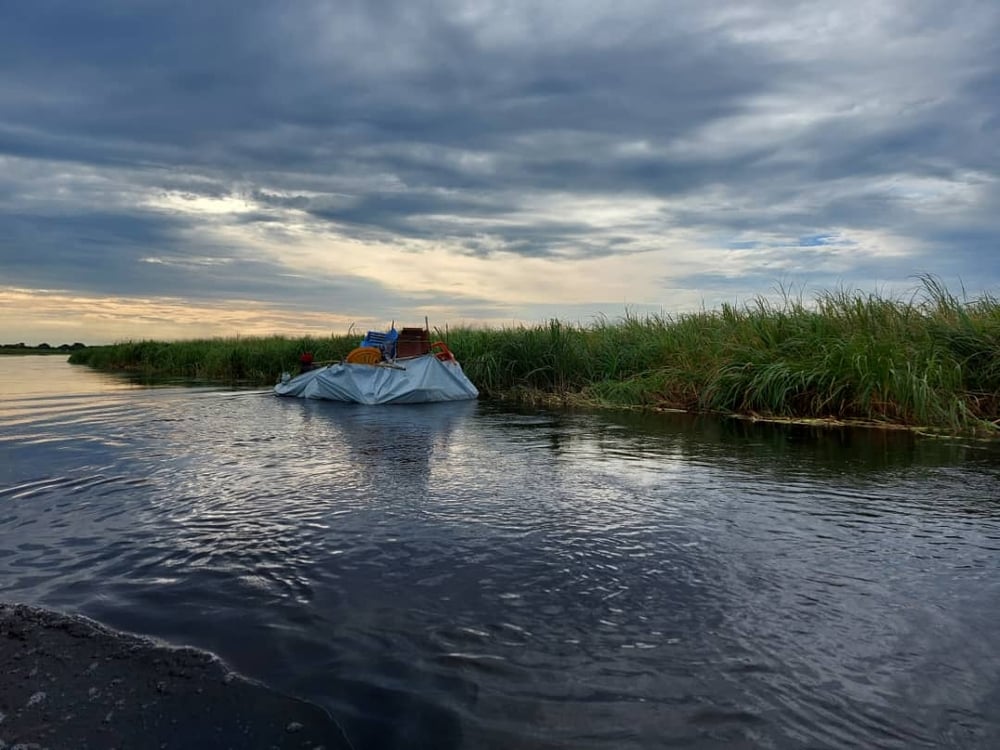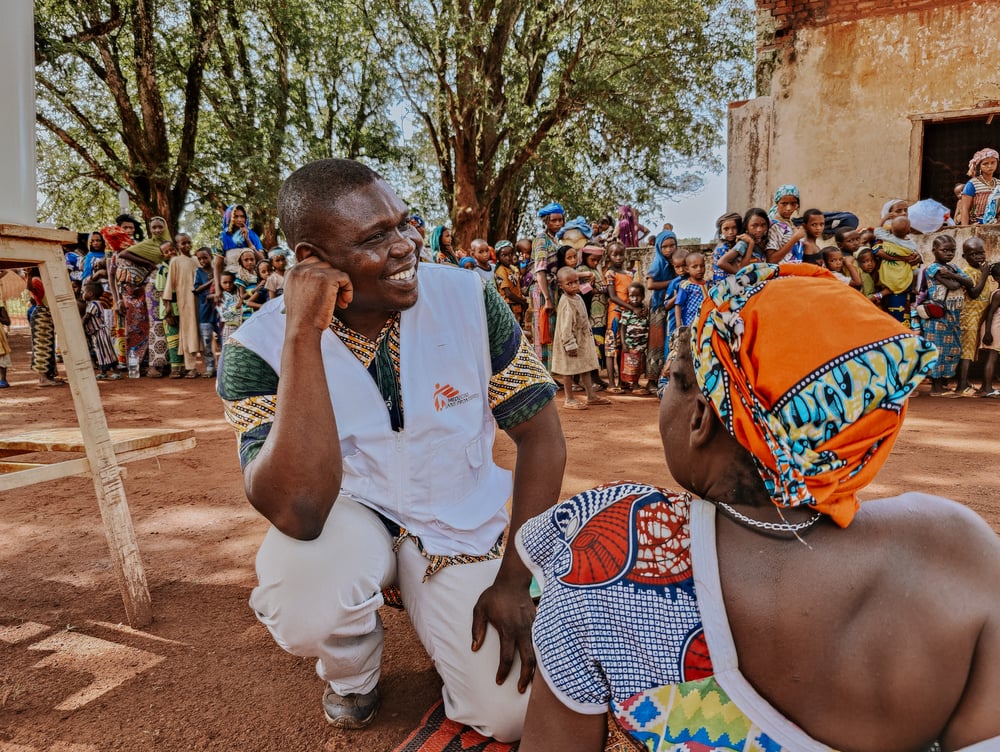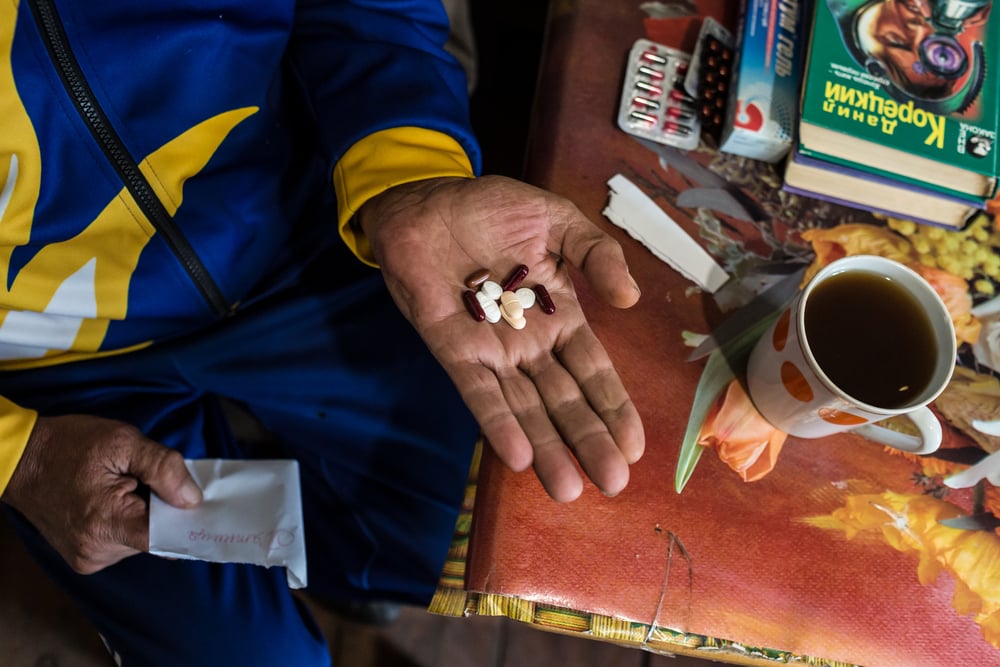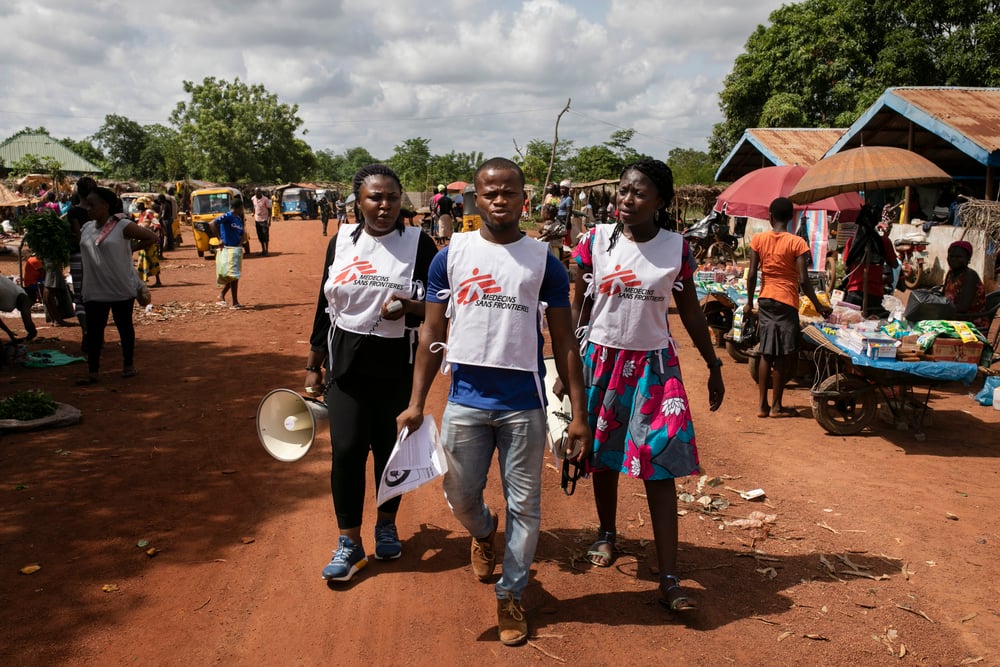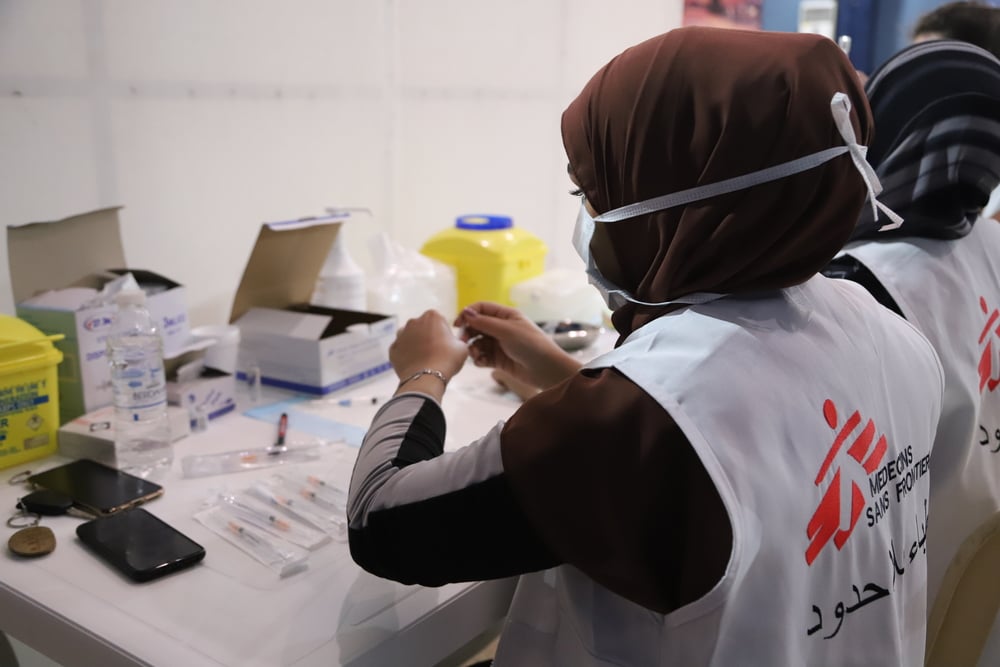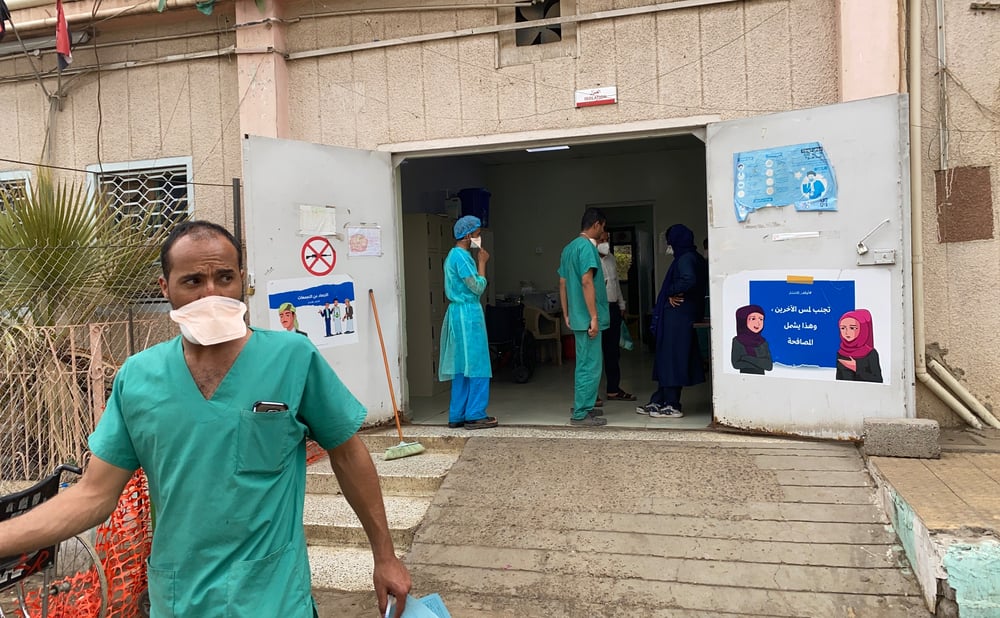MSF to Canada’s political leaders: “Stand up for humanity”
Recommendations to Canada’s political parties ahead of the 2025 federal election
On April 28, Canadians will vote in a federal election that is taking place in a period of major global upheaval. The Members of Parliament that Canadians will elect will decide how Canada responds to a world experiencing alarming levels of conflict and crisis, and where hundreds of millions of people’s lives, safety and dignity are at risk.
Canadians will vote at a time when the international humanitarian system, on which the world depends to prevent catastrophic suffering and loss of life in the face of global crises, is facing an unprecedented assault – on its people, on its funding, and on its very existence.
For decades, Canada has played a vital role in global efforts to alleviate suffering during humanitarian emergencies. It has done so not only as a donor, but through its diplomacy and its willingness to stand up for human dignity and basic humanitarian principles when they are under attack. Canada is also home to a world-class medical technology sector, which has the capacity to deliver the medicines and vaccines that patients need to help prevent the worst impacts of global health crises.
Neglecting disease outbreaks and humanitarian crises can cause far-reaching consequences—including here at home. Canadian leadership is essential to uphold our shared humanity.
But Canada’s impact depends on the choices made by its political leaders. That’s why Doctors Without Borders/Médecins Sans Frontières (MSF) is calling on those leaders to stand up for humanity in this historic moment, and to ensure that Canada’s next government will prioritize the needs of the world’s most vulnerable people, both at home and abroad.
MSF is an international humanitarian medical organization that responds to emergencies in more than 70 countries. We see first-hand the worst impacts of global crises, and the suffering they cause. We also see the differences that people in Canada, and their representatives in government, can make in reducing that suffering.
MSF sent the following humanitarian recommendations to Canada’s federal political parties ahead of the upcoming election, to outline the specific actions that all political leaders should insist upon from Canada’s next government:
1. Stand up for people affected by conflicts and crises
Use all Canada’s political and diplomatic tools to help resolve humanitarian crises
Humanitarian organizations like MSF exist to alleviate the suffering of people impacted by global emergencies. But humanitarians cannot stop wars, and we alone cannot prevent the many factors driving alarming levels of displacement, malnutrition and mortality in the places where we work. We also cannot hold perpetrators accountable for violations of international humanitarian law (IHL) or manage by ourselves global outbreaks that kill millions and cost billions. These are political problems, and they require political solutions from governments who control the tools needed to meet these challenges directly.
Canada should use its diplomatic and political power to ensure the world responds effectively to global crises. Amid the ongoing conflict in Sudan, for example, even what aid is available has been repeatedly blocked by the warring parties, which is a violation of IHL. Canada must actively engage with other members of the international community to stop, prevent and address these kinds of violations.
Canada can also use its influence in Haiti to ensure that security forces will protect and respect the humanitarian space in which MSF works. Canada should also renew its Rohingya Strategy, through which it has stood in solidarity with one the world’s most persecuted minorities.
Address shortfalls in global humanitarian funding
International humanitarian responses heavily depend on government funding for international assistance. Without this funding, many people experiencing humanitarian emergencies would have nowhere to turn for food, water, shelter or essential care. Yet assistance budgets around the world have been falling, even as needs have been increasing – especially following drastic recent cuts by the United States, United Kingdom and other major donors.
MSF is not directly affected by global funding cuts to international assistance – over 97% of MSF’s funding is from individuals – so we will continue to provide emergency humanitarian medical care in places where others can not. But we cannot fill all the gaps by ourselves, and we know that without a reversal of this downward funding trend many more people are likely to die in the world’s crisis contexts.
Canada’s next government must continue increasing its financial support for the global humanitarian system, as it did in its most recent federal budget. It is essential that Canada remind the world that meeting humanitarian needs must be a fundamental priority for all members of the international community. Millions of lives are at immediate risk – and many have already been lost.
2. Stand up for people everywhere threatened by disease outbreaks
MSF knows from firsthand experience that disease outbreaks in one place can quickly spread if left ignored – so Canada has a stake in standing up for people’s health everywhere. Here’s how Canada’s leadership can make a difference:
Transform how Canada funds the research and development of lifesaving medicines and vaccines
MSF regularly responds to outbreaks of diseases such as Ebola virus disease, Marburg virus diseases, and Lassa fever, and too often we lack the vaccines, treatments and diagnostic tests we need stop them from spreading. Although promising candidates have already been developed in Canadian laboratories for all of these diseases, their development has been delayed or outright stalled because of a lack of public or private investment to get them through testing, approval, and manufacturing, and available for use in the places where outbreaks occur.
Canada can champion equitable access to medicines and vaccines while revisiting how it funds the research and development of lifesaving medicines. Canada’s next government should take decisive action and implement federal policies to ensure that when Canadian public funding pays to develop new medicines, people’s health and access are prioritized over pharmaceutical profits. The Canadian government should enact a policy that attaches conditions to federal funding that ensures that medicines and vaccines developed with Canadian public funds are made affordable and accessible for Canadians and patients around the world.
Use Canada’s publicly owned biomanufacturing facilities to produce the medicines the world needs
After the COVID-19 pandemic, the Canadian government made considerable investments in domestic pharmaceutical manufacturing. These have included the construction of the publicly owned Biologics Manufacturing Facility (BMC) and Clinical Trial Material Facility (CTMF), both in Montreal. Since their completion, however, these federal facilities have mostly sat idle.
The BMC and CTMF should be put to use. When they are not needed as part of the response to health emergencies, they should be producing medicines of high public health value but low commercial appeal that have been neglected by profit-motivated pharmaceutical companies – such as those needed to address outbreaks of diseases like Ebola, Marburg and diphtheria, which mostly affect low- and middle-income countries that struggle to access affordable health products.
Canada can fill these critical gaps. It should use its publicly owned facilities to support the development and production of products like monoclonal antibody therapies (mAbs) for Ebola and diphtheria. It should make them available to global stockpiles, to Ministries of Health, and humanitarian organizations free of charge or on a cost-recovery basis.
3. Stand up for sexual and reproductive healthcare everywhere
Maintain Canada’s long-standing commitment to maternal, newborn and child health (MNCH) and sexual and reproductive health (SRH) as part of its international assistance policy
A disproportionate number of the patients MSF provides care for amid global health and humanitarian crises each year are women and children, who frequently bear the brunt of conflict, displacement, disease outbreaks and other emergencies. Women in particular face specific challenges related to maternal health, especially in humanitarian settings, and are also at significantly greater risk of sexual and gender-based violence (SGBV).
As a leading contributor to the international health and humanitarian response systems, Canada should recommit itself to protecting the health needs of women and children in crisis zones, and to the same principles that led it to adopt a Feminist International Assistance Policy under the most recent Liberal government, and the Muskoka Initiative under the former Conservative government. Both these initiatives placed the health of women and children – specifically mother, newborn and child health (MNCH) and sexual and reproductive health (SRH) – at the centre of Canada’s international assistance policy.
The next Canadian government should continue this approach, whether through revised versions of these pre-existing tools and policies, or through the introduction of new policies aimed at maintaining Canada’s long-standing commitment to addressing the impacts of conflict and crisis on some of the most vulnerable members of global society.
Prioritize sexual and reproductive health needs when determining Canada’s annual humanitarian assistance allocations
Canada must also continue to specifically prioritize sexual and reproductive health needs when deciding where to allocate its humanitarian assistance funding each year. In recent years, Canada has consistently prioritized funding activities in humanitarian crisis settings that include gender-responsive programming. This must continue, with a specific focus on sexual and reproductive needs.
For more details, and to read these recommendations in full, please refer to MSF’s 2025 Policy Recommendations for Canada’s Next Government.
We believe that alleviating the suffering of people made vulnerable by crisis and conflict is a fundamental imperative, and the responsibility of every member of the international community. As an independent and mostly privately funded humanitarian emergency medical organization, MSF works to deliver medical care to people in the most severe and complex crises in the world, but we cannot do it on our own. We need governments like Canada’s to stand up for humanity, and place humanitarian priorities at the centre of their domestic and foreign policies.
To help make humanitarian needs a key issue in the next Canadian federal election, please share these recommendations with your networks, and tell the politicians asking for your vote that Canada’s humanitarian responsibilities matter.
